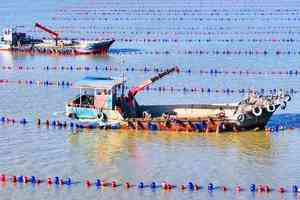Last week, a federal judge ruled that the government's current plan for management and restoration of wild salmon and steelhead populations on the Snake River is in violation of both the federal Endangered Species Act and the National Environmental Policy Act, primarily due to its allowance of continued operation of the lower system of dams on the Snake, which it deemed a threat to the continued existence the Snake's native, imperiled fish populations. In this latest ruling, which is the fifth of its kind, the court clearly states that the federal government must begin to seriously consider bypass or removal of the lower Snake River dams whose operation have long been an exercise in money evaporation and stupidity.
According to the court's opinion, filed by Judge Michael H. Simon,
Congress enacted the National Environmental Policy Act to ensure a process in which all reasonable alternatives are given a “hard look” and all necessary information is provided to the public. In addition, a central purpose of an environmental impact statement is “to force the consideration of environmental impacts in the decisionmaking process.” For example, the option of breaching, bypassing, or even removing a dam may be considered more financially prudent and environmentally effective than spending hundreds of millions of dollars more on uncertain habitat restoration and other alternative actions.
Simon sharply criticized the government for persisting with a long running approach that that ignores the impact of the dams and focuses solely on "hydro-mitigation efforts that minimize the effect on hydropower generation operations with a predominant focus on habitat restoration," efforts that that "have already cost billions of dollars, yet they are failing".
The court's ruling also found that the management plan failed to adequately assess the mounting impacts of climate change on salmon and steelhead population, stating unequivocally that "NOAA Fisheries’ analysis does not apply the best available science, overlooks
important aspects of the problem, and fails properly to analyze the effects of climate change."
Simon's opinion was consistent and often harshly worded, noting
More than 20 years ago, Judge Marsh admonished that the Federal Columbia River Power System “cries out for a major overhaul.” Judge Redden, both formally in opinions and informally in letters to the parties, urged the relevant consulting and action agencies to consider breaching one or more of the four dams on the Lower Snake River. For more than 20 years, however, the federal agencies have ignored these admonishments and have continued to focus essentially on the same approach to saving the listed species ... Many [of which] continue to be in a perilous state.
The 2014 BiOp continues down the same well-worn and legally insufficient path taken during the last 20 years. It impermissibly relies on supposedly precise, numerical survival improvement assumptions from habitat mitigation efforts that, in fact, have uncertain benefits and are not reasonably certain to occur. It also fails adequately to consider the effects of climate change and relies on a recovery standard that ignores the dangerously low abundance levels of many of the populations of the listed species.
Chris Wood, president and CEO of Trout Unlimited said Simon's ruling underscored the need for leadership and collaboration in order to save the Snake's wild fish. “For almost a decade, Trout Unlimited has called for political leadership to establish a collaborative forum to develop solutions to recover wild salmon while simultaneously addressing the economic needs of the communities along the Columbia and Snake rivers,” said Wood.
Wood added that, "A future in which both people and wild salmon thrive in the Columbia and Snake basins is within our grasp if we summon the courage, vision and good will necessary to find it."
































Comments